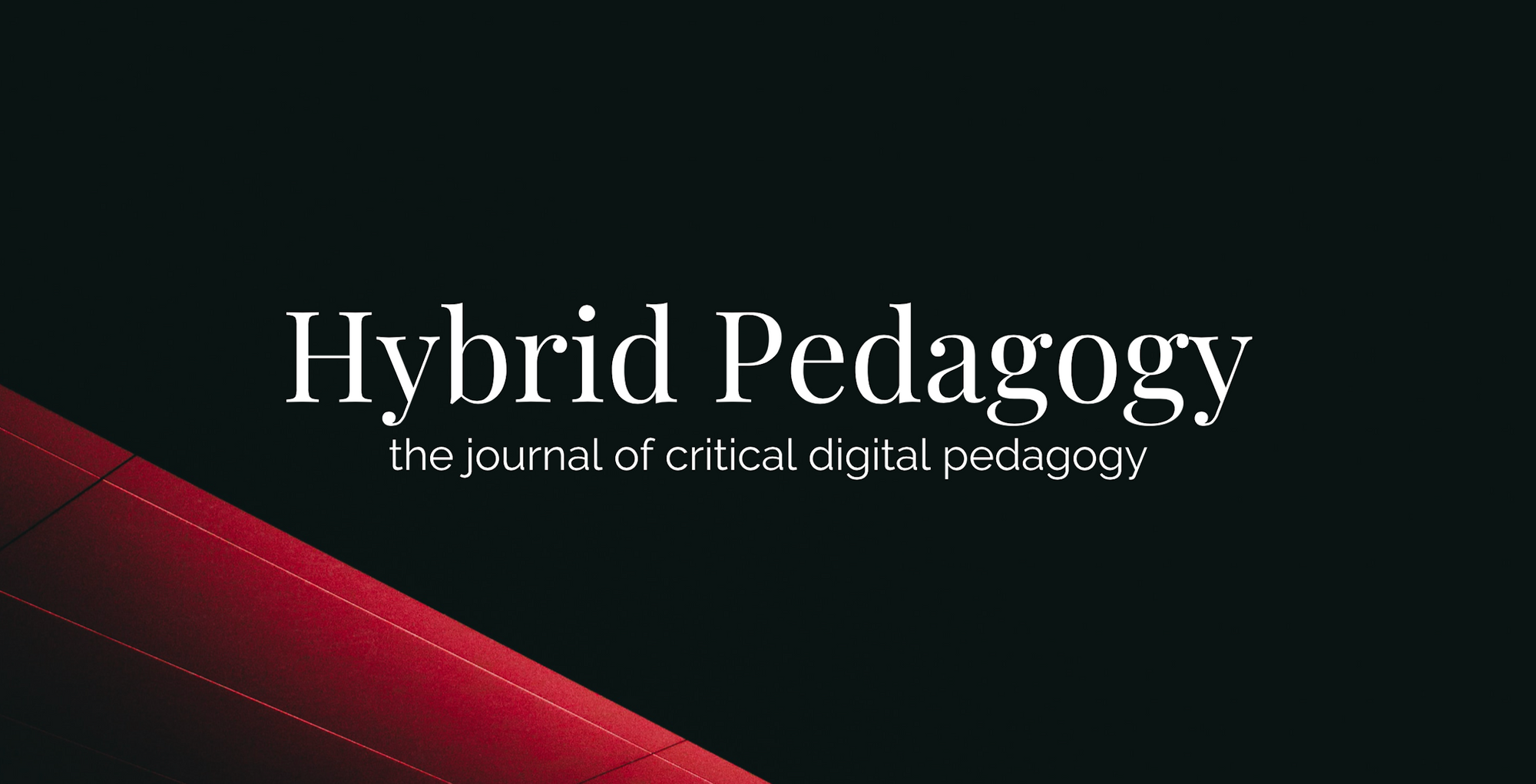Submissions for Hybrid Pedagogy are on pause. (We are currently focusing on longer form publications). Contact us if you have any questions, or if you have an idea for a book, and please check back for updates.
Hybrid Pedagogy actively pushes the boundaries of what, how, and when academic work is published. We’re open to anything related (even loosely) to digital and analog pedagogy, including but not limited to multimedia work, scholarly essays, and personal narratives. Our peer review process is collaborative, open, and aimed not at intellectual gatekeeping but at helping writers and scholars develop their work.
Our articles embody praxis — they blend theory with practice, analysis with application. We value storytelling and experience as a source of knowledge and understanding. As Freire says,
We must not negate practice for the sake of theory. To do so would reduce theory to a pure verbalism or intellectualism. By the same token, to negate theory for the sake of practice, as in the use of dialogue as conversation, is to run the risk of losing oneself in the disconnectedness of practice.
Hybrid Pedagogy amplify disenfranchised voices and motivate those who work with students. Many of the journal articles on Hybrid Pedagogy respond to one of our calls for papers.
Our books and articles:
- make big claims, ask hard questions, and provoke discussion;
- revise traditional notions of scholarship by disrupting convention, reimagining form, using a style accessible to a broad audience, and perforating the boundaries of disciplines and institutions;
- forego traditional citation methods in favor of more dynamic digital media citation practices;
- reference other work published in the journal, drawing connections and creating dynamic conversations;
- offer context and analysis that go beyond mere explication of teaching practices or accounts of classroom assignments;
- engage critical pedagogy, broadly defined.
Our style, like our process, eschews academic norms. This journal (like its articles) was born digital and is most often read on phones and tablets. That digital nature shapes our work and affords creative connectivity.
Articles we publish:
- are short, comfortably read on a mobile device, typically 1,500–2,500 words;
- use plain, clear, approachable language wherever possible, avoiding the unnecessary complexity common in academic writing;
- avoid signposting but employ headings to facilitate navigation/scanning;
- omit reference lists in favor of direct hyperlinks to sources when they are mentioned, even non-digital ones (for instance, linking to entries on Google Books or Worldcat);
- promote the author's voice, rejecting the idea of an objective or distant author; and
- challenge readers to re-think, re-shape, or re-imagine their teaching praxis.
All works published on Hybrid Pedagogy are open-access and licensed to the public under Creative Commons. Authors maintain copyright of their original work, and we just ask that you credit the original appearance on Hybrid Pedagogy if you republish elsewhere.

